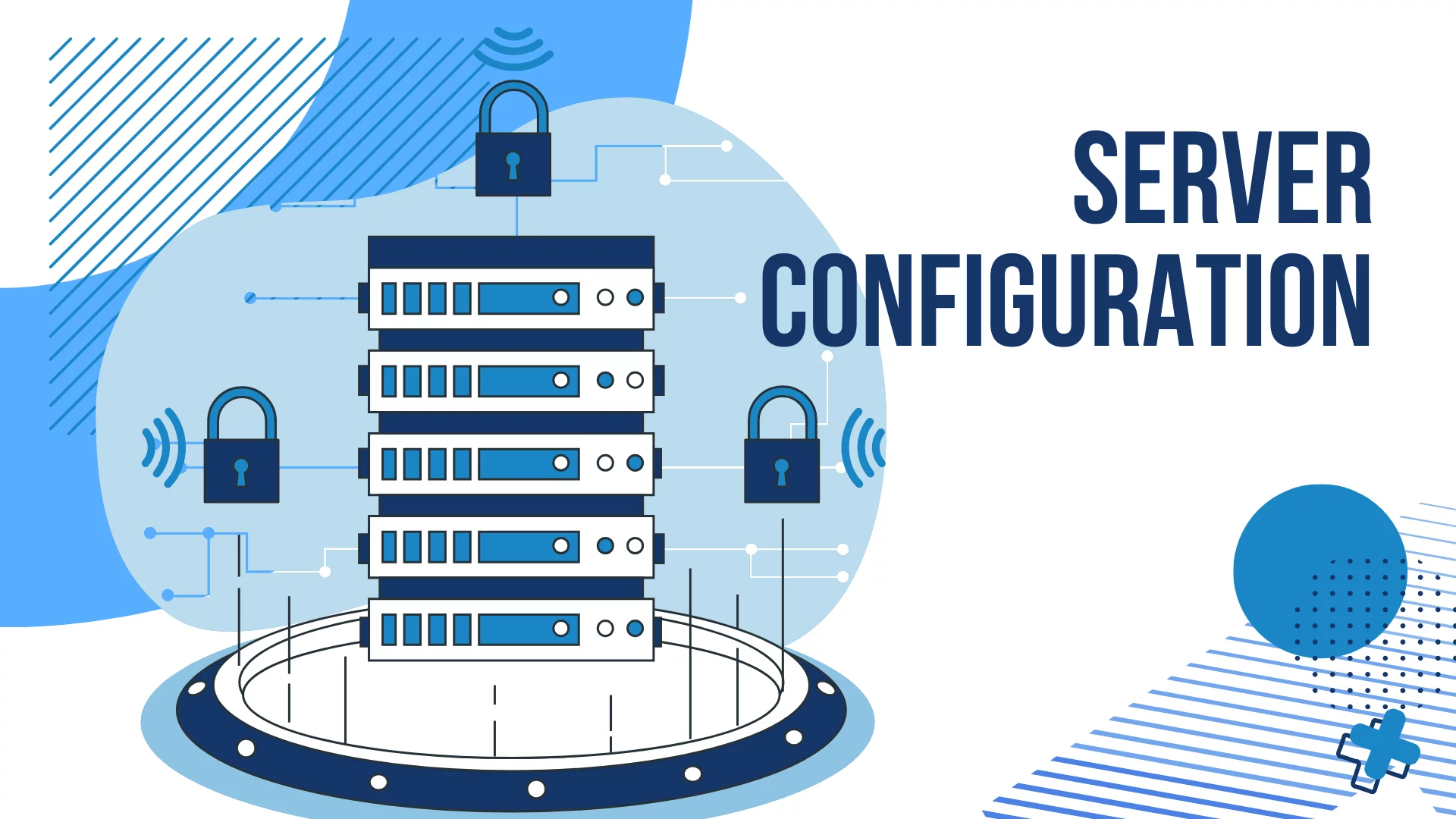
How Do You Ensure NodeJS Security For Your Apps Development?
- 1) Why focus on NodeJS security issues in your app development?
- 1.1) It is a commitment to quality and user well-being.
- 1.2) There are always NodeJS security vulnerabilities that must be mindful of.
- 2) NodeJS security best practices
- 2.1) Fundamentals
- 2.2) Data Security
- 2.3) Server Configuration
- 2.4) Monitoring and Testing
- 2.5) Leveraging Artificial Intelligence (AI)
- 3) Conclusion
Unquestionably, Node.js is one of the most popular technologies for backend development. Fantastic features have made it gain wide popularity for building high-performance and scalable applications. Even giants like Twitter, Netflix, eBay, Reddit, and Paypal also implement Node.js architecture to power their backends and handle their increasing traffic.
In keeping with the 2023 Stack Overflow Developer Survey, Node.js was placed as the most desired technology by 33.35% of the 90,000 developers participating in the survey. Furthermore, in the US alone, Node.js has become one of the most widely used technologies, powering over 6.3 million websites.
However, like many other technologies, Node.js is not immune to security risks. The popularity of Node.js is also proportional to its high likelihood of becoming a target of cyber attacks. Given the advanced state of technology today, hacking incidents or data breaches are unavoidable. This will undoubtedly not be good news for your company’s growth. Therefore, securing Node.js against vulnerabilities and threats is of the utmost significance. So, at HDWEBSOFT, we believe this is the best time to share some expert perspectives on NodeJS security in web application development and best practices around it.
Why focus on NodeJS security issues in your app development?
Since no technology is flawless, security must always come first when developing apps. Adhering to only the best standards for architecture or coding is insufficient. It is imperative that proactive and realistic steps be taken to safeguard the security of your Node.js application at all cycles.
Read more: Which Kind of Application that Nodejs is the Best Fit for?
It is a commitment to quality and user well-being.
Protecting user information: This entails safeguarding sensitive user data, including personal information, login credentials, and payment details. Neglecting security in this realm can result in substantial financial penalties and legal complications due to regulatory non-compliance.
Protecting the application’s core functionality: Node JS security measures in software development are indispensable for defending the application’s core functionality. Malicious factors can exploit vulnerabilities to manipulate data, inject malicious code, or compromise the app’s integrity, thereby undermining its intended user experience.
Preserving businesses’ reputation: Maintaining a sterling reputation and fostering user trust hinges on prioritizing security. Users expect their data to be handled with the utmost care, and any breach can lead to a loss of trust and credibility, especially in a competitive digital landscape.
There are always NodeJS security vulnerabilities that must be mindful of.
Node.js excels in the rich NPM environment and leverages its strength from the extensive NPM with millions of libraries. However, a notable challenge arises as most NPM packages contain some typical security vulnerabilities.
Open-source technologies have gained global popularity due to their cost-effective alternatives. However, the inclusive nature of open source raises concerns about the security challenges it may pose. Approximately 14% of the NPM ecosystem, a key component of Node.js projects, has been identified as vulnerable to security breaches. This vulnerability extends to a substantial 54% of affected packages, posing significant threats to Node JS security in web app development.
In essence, the safety of Node.js project is directly linked to the security of its dependencies. According to the Snyk State of Open Source Security report, an average Node.js project exhibits 49 vulnerabilities out of 79 direct dependencies. This alarming statistic underscores the importance of safeguarding NodeJS security of businesses’ apps against potential security threats.
Despite the availability of numerous popular packages for Node.js developers, ensuring the security and integrity of these components remains a challenge. The absence of a foolproof guarantee that these packages are free from vulnerabilities or malicious code underscores the need for developers to exercise extra caution. Even minor security flaws in third-party modules can lead to severe consequences in the long run.
NodeJS security best practices
While Node.js offers unparalleled advantages in web application development, its open-source nature requires strong security. So make sure your developers stay up to date with practices to overcome threats in Node JS security, engage with the Node.js community, and prioritize security throughout the development lifecycle. Documentation related to this issue is proposed by Node.js itself as well as reputable and famous open-source initiatives and developer education community sites, such as freeCodeCamp and OWASP. Thereby, businesses can fully proactively exploit the power of Node.js while protecting applications against possible vulnerabilities.
In addition, HDWEBSOFT also wants to highlight some of the essential aspects for safely coding and securing Node.js applications below:
Fundamentals
Note that before starting to build more complex measures for your Node.js application security, make sure the fundamentals are taken care of and implemented since they serve as the bedrock for a secure Node.js environment.
Run Node.js as a Non-Root
Running Node.js application with non-root privileges is a fundamental NodeJS security practice, vital for minimizing potential risks, enhancing system security, and fortifying system integrity.
Granting root access to applications poses significant dangers, as vulnerabilities can lead to unrestricted control over the entire system. By opting for non-root users, developers enforce the principle of least privilege, ensuring that applications have only the necessary access for their intended functions. This practice prevents unauthorized system changes, aligns with container security best practices, and confines the impact of potential breaches to a limited scope, fostering a more resilient and secure computing environment.
Keep dependencies updated
Ensuring Node JS security necessitates regular updates for both Node.js versions and underlying dependencies. These updates, often containing critical security patches, are essential to prevent potential exploits addressed in newer releases.
Keeping dependencies current in Node.js is not only about security but also about maintaining compatibility and stability. Regular updates seamlessly integrate the latest features, with tools like Snyk or Dependabot streamlining the process for efficiency and oversight prevention. This proactive defense against supply chain attacks fortifies the overall resilience of Node.js applications, fostering a secure and adaptable development environment.
Use strong authentication
Enhancing NodeJS security emphasizes robust authentication practices. Techniques like Bcrypt for secure password hashing resist brute-force attacks, while JWT for token-based authentication fortifies resilience against unauthorized access and provides a secure means of verifying user identity.
Integrating multi-factor authentication (MFA) adds an extra layer of defense, requiring users to provide multiple forms of identification, reducing the risk of unauthorized access even if credentials are compromised. Additionally, properly leveraging Node.js libraries and frameworks, such as Passport, when seamlessly integrated with the above mechanisms, further contributes to creating a well-protected application landscape.
Data Security
Node.js, a popular runtime for scalable server-side applications, often handles sensitive user information. Neglecting data security can lead to severe consequences, including unauthorized access and data breaches. Emphasizing robust data security measures is imperative to ensure the trustworthiness of modern applications and bolster Node JS security.
Validate and sanitize user inputs.
Like any web-based system, Node.js apps also face risks from malicious input that can compromise application integrity and expose sensitive data. Robust input validation ensures user inputs align with expected formats and patterns and fends off common threats like SQL injection and cross-site scripting (XSS) attacks.
Leverage specialized libraries such as Joi or validator for stringent input validation by setting clear rules on expected input formats, types, and lengths, preventing unauthorized characters or malicious scripts from sneaking into the application.
Furthermore, the muscle of popular frameworks like Express, Fastify, or Hapi should be harnessed when implementing input validation in Node.js applications. Setting up security layers from the project’s inception ensures potential vulnerabilities are nipped in the bud, creating a safe haven for web applications.
Encrypt sensitive data
Encrypting sensitive data is a crucial aspect of NodeJS security. This practice not only prevents unauthorized access but also aligns with regulatory requirements related to data protection and privacy.
Node.js applications often handle user data, passwords, and other sensitive details that must be protected from unauthorized access and potential breaches. Robust encryption mechanisms like bcrypt for password hashing are essential. Storing sensitive data, such as passwords, in an encrypted format adds an extra layer of defense against security threats. Additionally, solutions like Key Management Systems (KMS) can be employed to manage encryption keys securely, ensuring that access to sensitive information is tightly controlled.
Protect against injection attacks.
Threats like SQL injection and cross-site scripting (XSS) threaten NodeJS security. These attacks exploit the mishandling of untrusted data, leading to unintentional harmful commands.
Best practices involve using prepared statements for database interactions, treating user input as data to prevent SQL injection, and escaping user input in HTML or JavaScript, further guarding against cross-site scripting.
Leveraging secure coding features in frameworks like Express, Fastify, or Hapi strengthens Node JS security applications, emphasizing early-stage configuration of security layers to address injection vulnerabilities and bolster overall proactively.
Server Configuration
Server configuration is a pivotal aspect of NodeJS security and a proactive strategy, creating a secure foundation for web applications and fortifying them against diverse security threats.
Enable HTTPS
Enabling HTTPS is essential, especially when handling sensitive information or user credentials, as it ensures the confidentiality and integrity of data during transit. This is achieved by implementing TLS/SSL encryption protocols, which encrypt data transmitted over the network, preventing unauthorized access and mitigating the risk of eavesdropping. It fosters user trust by signaling a secure connection and aligns with contemporary web security standards and regulations.
Set security headers
Headers like X-Frame-Options prevent clickjacking, Content-Security-Policy restricts script execution, and Referrer-Policy controls referrer information transmission.
These headers contribute to a robust security posture by mitigating risks associated with cross-site scripting (XSS) attacks, clickjacking, and information leakage. Properly configured security headers provide an additional defense against potential exploits, fostering a safer browsing experience for users interacting with Node.js applications.
Use secure cookies
Furthermore, NodeJS security is bolstered by using secure cookies. Setting cookies with the httpOnly and secure flags prevents unauthorized access and ensures they function exclusively over HTTPS, enhancing protection against potential attacks targeting user sessions.
The `httpOnly` flag restricts access to cookies from client-side scripts, reducing the risk of cross-site scripting (XSS) attacks. Meanwhile, the `secure` flag ensures that cookies are transmitted only over encrypted HTTPS connections, safeguarding sensitive information during data transmission.
Monitoring and Testing
Monitoring and Testing are integral components of Node JS security best practices, playing crucial roles in ensuring the robustness and resilience of web applications.
Security Audits and Testing
Regular security audits are essential to identify vulnerabilities in the code and infrastructure of Node.js applications. Security audits involve static code analysis tools and penetration testing services to uncover potential weaknesses. By integrating security testing into the development process, developers can proactively detect and address vulnerabilities before they become exploitable risks.
Tools like Jest or Mocha can be employed to write unit and integration tests that cover security-sensitive aspects of the code, providing an additional layer of protection against potential threats.
Monitoring and Alerts
Implementing effective logging and monitoring systems is vital for tracking suspicious activity and responding promptly to possible security incidents. Monitoring tools provide real-time insights into server performance, aiding quick responses to mitigate impacts.
Alerts can be set up to notify developers of any anomalies or unexpected behavior, enabling swift action to address potential security threats. Regularly reviewing logs and responding to alerts helps maintain a proactive stance against emerging security challenges, contributing to the overall security posture of Node.js applications.
Incident Response Planning
Having a well-defined incident response plan is critical for managing security incidents effectively. This plan should outline roles, responsibilities, and communication channels in the event of a security breach. Regular testing of the incident response plan ensures that teams are well-prepared to handle security incidents and minimizes the impact of potential violations.
Incident response planning is a proactive measure that enhances the resilience of Node.js applications against security threats and helps maintain a secure and trustworthy environment for users.
Leveraging Artificial Intelligence (AI)
Using AI to review code security is an innovative approach that holds promise in enhancing Node JS security practices. This also represents a forward-looking strategy that aligns with the dynamic nature of cybersecurity. By harnessing the capabilities of AI, businesses can strengthen NodeJS security measures and stay ahead of evolving threats in the ever-changing landscape of web application security.
Automated Code Analysis
AI-driven tools can perform automated code analysis to identify potential security vulnerabilities in Node.js applications. These tools use machine learning algorithms to analyze patterns, detect anomalies, and highlight areas of code that may be susceptible to security threats.
Intelligent Threat Detection
AI can be employed for intelligent threat detection, continuously monitoring the application’s behavior and identifying patterns indicative of potential security risks. By learning from historical data and adapting to new threats, AI systems can detect anomalies, unusual user behavior, or potential malicious activities.
Enhanced Decision Support
AI tools can enhance developers’ decision-making by providing context-aware recommendations and insights during the code review. These tools can assist developers in making informed decisions about security practices, suggesting improvements, and ensuring adherence to best practices. Integrating AI-driven decision support streamlines the code review process, making it more efficient and effective in maintaining a secure codebase for Node.js applications.
Conclusion
NodeJS security is not a one-size-fits-all endeavor. Instead, it requires a multi-layered approach encompassing fundamental practices, data security measures, server configurations, and robust input validation. Integrating cutting-edge technologies like Artificial Intelligence further enhances your security posture, providing intelligent threat detection and decision support.
As you embark on the journey to fortify your Node.js applications, HDWEBSOFT is your trusted partner. As a leading Node.js development company in Vietnam, we bring expertise, innovation, and a relentless commitment to ensuring the security and success of your projects. Contact HDWEBSOFT today to leverage our tailored solutions, expert guidance, and collaborative approach to building secure, resilient, high-performing Node.js applications. Together, let’s confidently navigate the dynamic landscape of Node.js development and empower your digital aspirations.
















